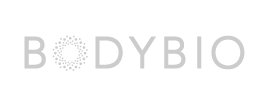Clinical Grand Rounds: Dr. Raja Sivamani
Integrative dermatology is a therapeutic modality that combines complementary and alternative medicine with allopathic interventional strategies in the treatment of dermatological conditions1. Patients that seek out an integrative dermatologist are often prescribed compounded creams using herbal ingredients, nutritional supplements, therapeutic diets, and personalised lifestyle recommendations. The combination of both schools of thought allows the practitioner to address the uncomfortable symptoms associated with dermatological conditions but also seeks to address the root cause of the issue. As in many cases, the root cause has links to digestive health and microbiome balance. There is bountiful evidence linking the strong bidirectional correlation between gut and skin homeostasis2. Here, we will explore the microbiome influence on two common dermatological disorders: Psoriasis and Atopic Dermatitis.
Psoriasis:
Dermatological findings are commonly associated with underlying gastrointestinal dysfunction due to the microbiome involvement with the immune system. Psoriasis is an immune-mediated inflammatory skin disease; whose development depends on both genetic factors and external triggers2. The microorganisms in your digestive tract play a pivotal role in the immune tolerance to foods you commonly consume and allergens in your environment. The “Microbiome-Immune System Crosstalk” is a term that refers to the intimate relationship and communication between the microbes living in your GI tract and its influence on your immune system. Indeed, research has established that changes in the microbiome influence internal metabolic processes like liver dysfunction, inflammatory bowel disease, ageing, cancers, and autoimmune conditions3. Autoimmune diseases arise when your immune system mistakenly attacks your own body. In the case of Psoriasis, an overactive immune system begins to attack the skin and joints.
Much of the inflammation caused by Psoriasis is influenced by the strength of the gut barrier and the bacterial composition of your microbiome. Specific species of bacteria like Lactobacillus helveticus decreases dermatitis and trans-epidermal water loss4 and Lactobacillus reuteri influences faster-wound healing. Much of this effect stems from the microbiome impact on T-cell differentiation in response to immune stimuli. T-cells, or T Lymphocytes, are white blood cells that originate as naïve cells and mature into different types of immune cells. Modulating the microbiome can have an impact on the type of T-cell that will be produced by the immune system. Specifically, targeted therapies to lower Th17 production are of great interest. Th17 cells promote the release of cytokine IL-10 which causes karatinocyte hyperproliferation, which is commonly observed as dry red patches on the skin in psoriasis patients2.
Commonly, dysbiosis patterns in psoriatic patients is characterized by lower levels of Lactobacillus spp., Bifidobacterium spp., and F. prausnitzii. Conversely, an increased level of Eschericha coli, Salmonella sp, Helicobacter sp, Campylobacter sp, are observed. These pathogenic species contain cells walls rich in LPS can potentiates the inflammatory and over-activation of the immune system. Conducting an in-depth whole genome stool test can provide valuable insights to tailor your patient intervention. Furthermore, removing potential dietary triggers like gluten, weight loss, and vitamin D status are all clinically shown to help patients suffering from psoriasis. The use of turmeric, curcumin, and fish oil supplements are also beneficial in reducing the inflammatory response accompanied by autoimmunity.
Atopic Dermatitis:
Atopic Dermatitis or Eczema is an itchy, non-contagious, inflamed skin condition that affects 5-20% of people at some point in their life5. While eczema is an external symptom of an internal problem. While the composition of bacteria in eczema patient’s gut is noted to be different, the use of probiotics makes little to no difference in reducing eczema symtoms5. These conclusions do not come as a surprise as there have been many research studies demonstrating the ineffectiveness of commercially available probiotics. By definition, probiotics are “live microorganisms which when administered in adequate amounts confer a health benefit on the host”6. Many commercial and pharmaceutical grade lack outcomes due inherent limitations. For example, traditionally available probiotics are predominately made from Lactobacillus and Bifidobacterium species7. These bacteria cannot survive an oxygenated environment outside of the intestinal lumen, nor can they survive the harsh environment of the gastric barrier. Their viability reaching the colon is very poor8. Reconditioning the intestinal lumen in three steps is one way to lower immune system activation and subsequent inflammation that is observed in eczema. Here are some ways to support a healthier intestinal environment.
- Improve Secretory IgA secretion: Secretory immunoglobulin A is the first line of defense against free LPS liberated in the intestinal lumen. Nutrients like omega-3s, glutathione, zinc, and phosphatidylcholine have been shown to positively impact sIgA levels.
- Increasing Mucin Production: The mucosa is a key barrier to the entry of LPS and antigens. Dietary supplement ingredients like serum derived immunoglobulins, concentrated amino acids, and citrus flavonoids have been shown to improve mucin2 production.
- Modulating the Microbiome: Probiotic spores have the innate ability to survive the harsh gastric passage and enter the intestines completely viable. Bacterial spores support overall microbiome diversification and the growth of important keystone species of bacteria. Further use of a prebiotic can help enhance short-chain fatty acid production to help positively modulate the immune system.
Identifying the root causes for these conditions and making lasting dietary and lifestyle changes are paramount in treating Psoriasis and Atopic Dermatitis. We hope that you walk away with information that helps you treat patients more thoroughly and holistically.
References:
- Tirant, M., et al. (2018). Integrative Dermatology – The Use of Herbals and Nutritional Supplements to Treat Dermatological Conditions. Open access Macedonian journal of medical sciences, 6(1), 185–202. https://doi.org/10.3889/oamjms.2018.041
- Alesa, D. I., et al. (2019). The role of gut microbiome in the pathogenesis of psoriasis and the therapeutic effects of probiotics. Journal of family medicine and primary care, 8(11), 3496–3503. https://doi.org/10.4103/jfmpc.jfmpc_709_19
- Cianci, R., et al. (2018). The Microbiota and Immune System Crosstalk in Health and Disease. Mediators of inflammation, 2018, 2912539. https://doi.org/10.1155/2018/2912539
- Baba H, et al. Oral intake of Lactobacillus helveticus-fermented milk whey decreased transepidermal water loss and prevented the onset of sodium dodecylsulfate-induced dermatitis in mice. Biosci Biotechnol Biochem. 2010;74:18–23.
- Makrgeorgou A, et al. Probiotics for treating eczema. Cochrane Database of Systematic Reviews 2018, Issue 11. Art. No.: CD006135. DOI: 10.1002/14651858.CD006135.pub3.
- Schlundt, J. (2012) Health and nutritional properties of probiotics in food including powder milk with live lactic acid bacteria. Report of join FAO/WHO expert consultation.
- Coghetto CC, et al. Probiotics production and alternative encapsulation methodologies to improve their viabilities under adverse environmental conditions. Int J Food Sci Nutr 2016; 67: 929-943 [PMID: 27456038 DOI: 10.1080/09637486.2016.1211995]
- Lewis ZT, Shani G, Masarweh CF, Popovic M, Frese SA, Sela DA, Underwood MA, Mills DA. Validating bifidobacterial species and subspecies identity in commercial probiotic products. Pediatr Res 2016; 79: 445-452 [PMID: 26571226 DOI: 10.1038/pr.2015.244].











































